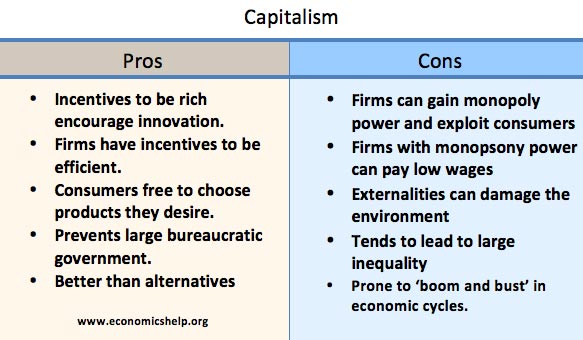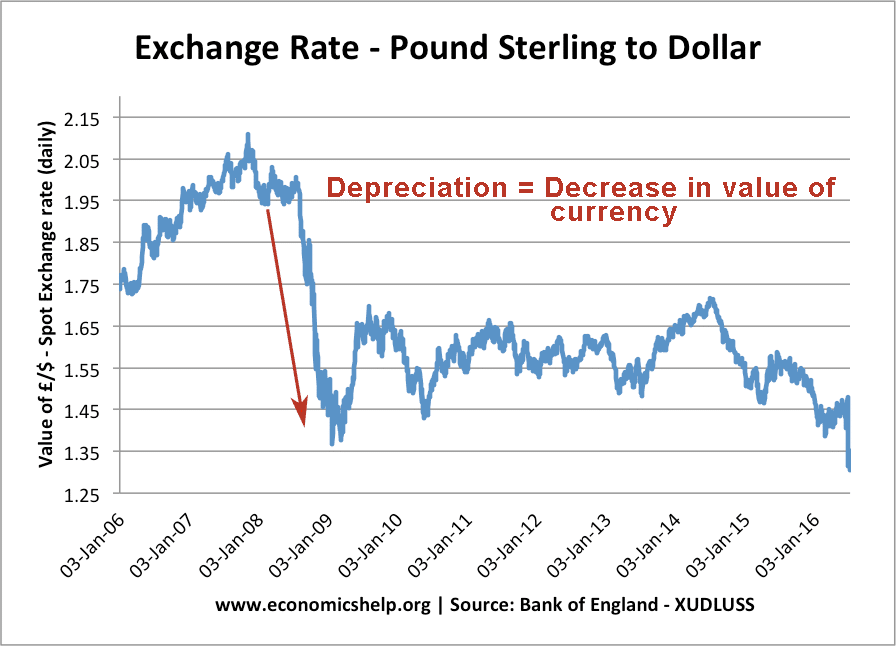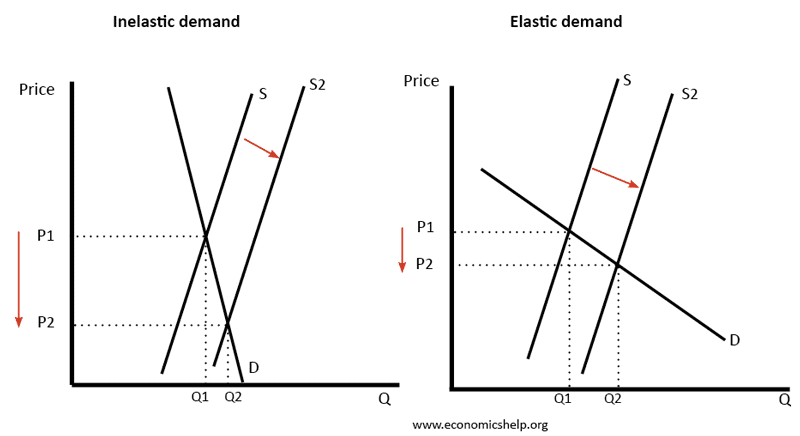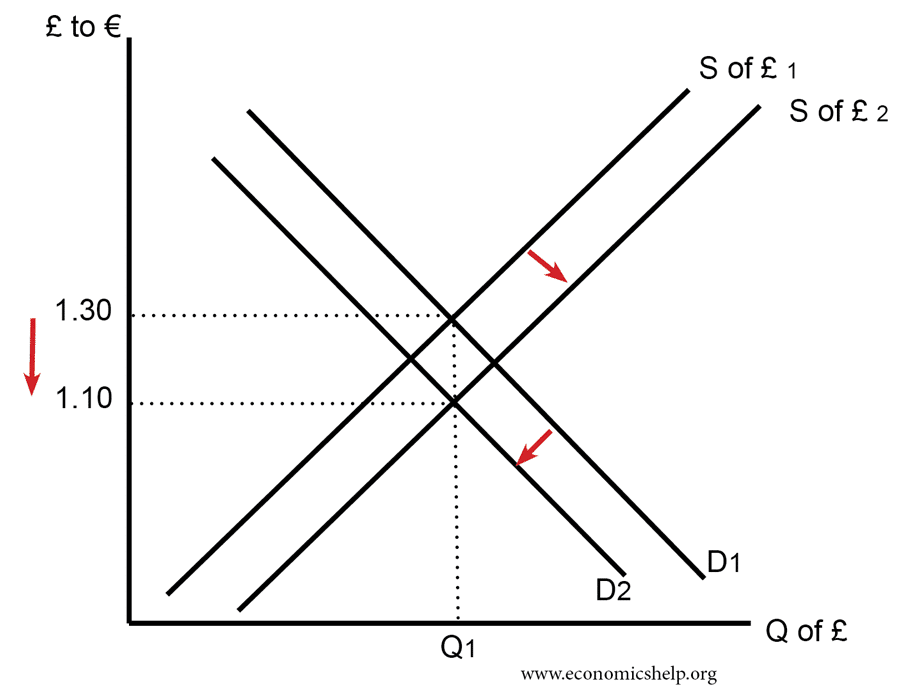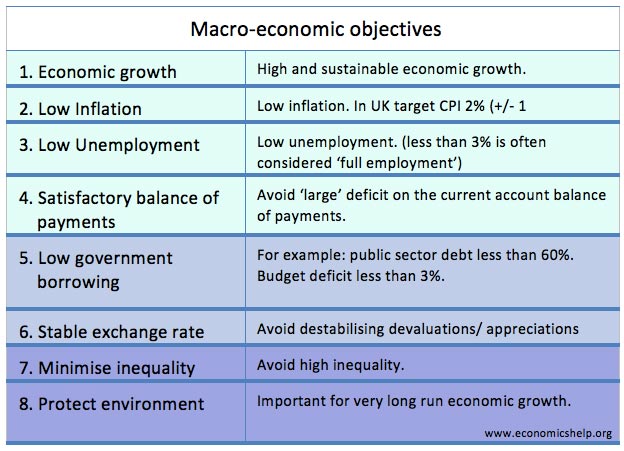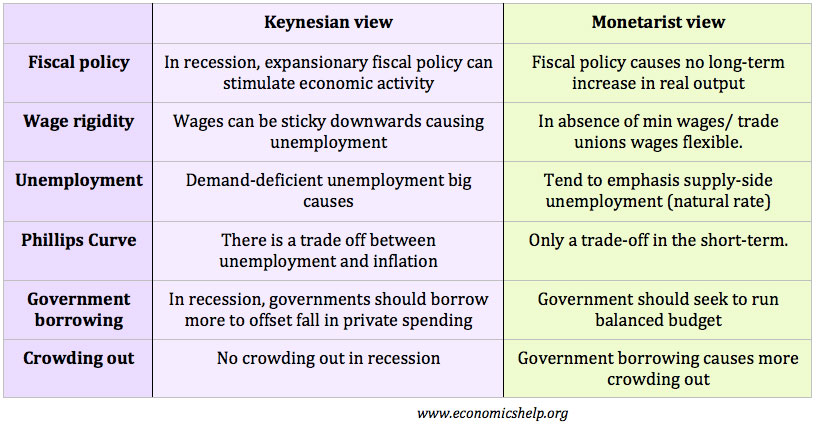Pros and cons of capitalism
Capitalism is an economic system characterised by: Lack of government intervention Means of production owned by private firms. Goods and services distributed according to price mechanism (as opposed to government price controls) Capitalism – pros and consWatch this video on YouTube Pros of capitalism “A society that puts equality before freedom will get neither. A …

